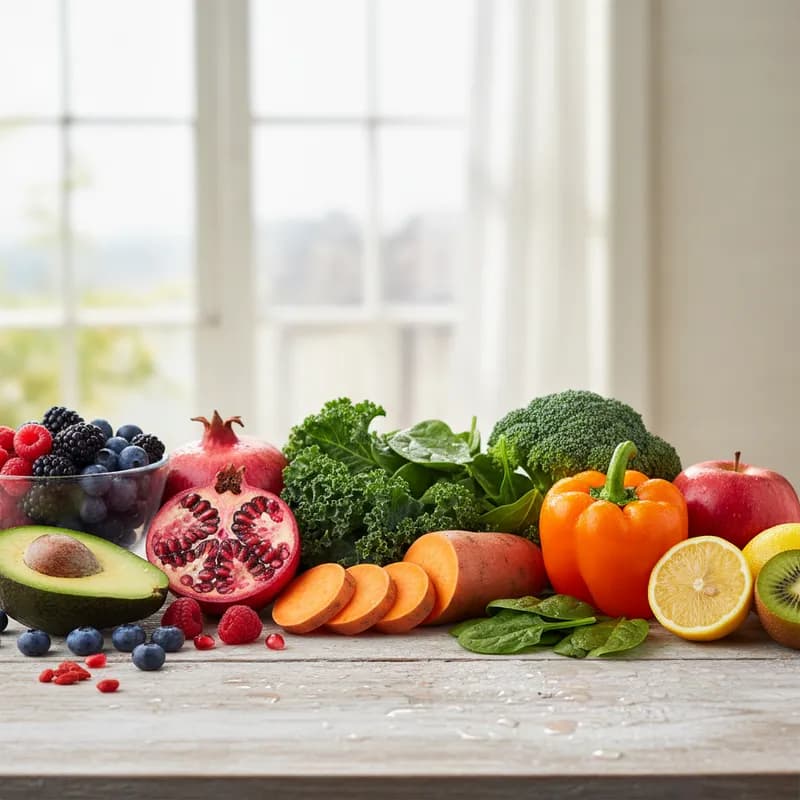
Ready to Start Your Wellness Journey?
Become a Herbalife Preferred Member and enjoy exclusive discounts of up to 25% on all products.
BECOME A PREFERRED MEMBERAntioxidants - What do they do & where do you get them?
I'm Susan Bowerman, Herbalife nutritionist. Antioxidants you hear the word all the time but you might not know what they are. Today I'm going to explain what antioxidants are and how they can benefit you.The word 'antioxidant' gets tossed around a lot. But if I were to ask you what an antioxidant is, or what it does, you'd probably be stumped other than to say that they're good for you. So, let me explain in simple terms what antioxidants are, and how they work.If I cut open an apple and leave it exposed to the air, in a few minutes it will start to turn brown. That's because as long as the apple is 'sealed' by the skin, the inside flesh is protected from the oxygen in the air. But once the fruit is cut, the natural oxygen in the air reacts with the natural sugars in the fruit in a reaction called oxidation and you start to notice the discoloration.In the most simple terms, the same process takes place inside your body, too. We're oxygen-breathing organisms, and taking in oxygen is a normal part of everyday metabolism. So oxidation can take place within the cells of your body, too. It's a natural process that takes place every time you breathe, when you exercise, as you digest your food, and so on. And as long as your body has plenty of 'antioxidants' around, the process is kept in check.Many of the antioxidants that we eat come in the form of pigments that give fruits and vegetables their bright colors, which are one reason I encourage people to eat a wide range of colorful fruits and vegetables. There are antioxidants in the skin of this apple that protect the flesh from browning. And once you eat that colorful apple skin, those antioxidants can function much the same way inside your body to protect you, too.Vitamin C is an antioxidant, which is why my apple won't turn brown if I put some lemon juice on it. The antioxidant vitamin C is protecting the sugars in the apple from oxidation. It's the same reason that lemon juice keeps your guacamole from turning brown.Here's another example. Lycopene is an antioxidant pigment that gives tomatoes their red color, and it helps protect the tomato from the heat of the sun, which can cause oxidant stress to the plant. When you eat tomatoes, the lycopene that was protecting the tomato, acts as an antioxidant in your body, helping to protect your cells.You can't completely stop oxidation from happening in your body, but you can build up your body's antioxidant defense system by plenty of plant foods. When you load up your plate with a variety of fruits and veggies, you're not only getting vitamins, minerals and fiber -- you're getting a healthy dose of antioxidants as well.
Ready to Start Your Wellness Journey?
Become a Herbalife Preferred Member and enjoy exclusive discounts of up to 25% on all products.
BECOME A PREFERRED MEMBER